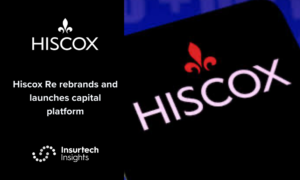Previsico is one of just 12 companies chosen for the seventh cycle of the Transit Tech Lab, selected from a global pool of 112 applicants. The initiative is designed to explore technology-driven solutions that can enhance ridership analytics, optimise infrastructure inspections, and improve maintenance across New York’s vast transit network.
Over an eight-week proof-of-concept period, Previsico will work alongside MTA and PANYNJ officials to demonstrate how its cutting-edge real-time flood forecasting technology can support emergency preparedness and mitigate the risk of flood-related disruptions.
The announcement follows a series of severe flooding events in the New York area, including a particularly damaging episode in September 2023 that submerged roads and halted subway services, leading to an estimated US$100 million in damages.
Stacey Matlen, Vice President of Innovation at the Partnership for New York City, said “The Transit Tech Lab provides an accelerated pathway for innovative companies, like Previsico, to solve challenges facing the largest transit agencies in North America. We’re excited to collaborate with Previsico and the other companies in this year’s Transit Tech Lab to test solutions that optimise maintenance processes, a key component of a well-running transit system.”
Jonathan Jackson, CEO of Previsico, commented “We’re thrilled to be selected by the Transit Tech Lab to pilot our flood forecasting technology with the MTA and PANYNJ. This marks a significant milestone in our US expansion, as we work with forward-thinking agencies to bolster the resilience and efficiency of critical infrastructure.”
Since its inception in 2018, the Transit Tech Lab has helped drive the adoption of transformative technologies in public transit. Of the more than 1,000 companies that have applied, 81 have tested their solutions through the programme, with 30 technologies progressing to commercial deployment or informing procurement strategies.
The current cohort of companies, including Previsico, will conduct live tests with agencies such as the MTA, PANYNJ, and the New York City Department of Transportation to evaluate the viability and scalability of their innovations.









